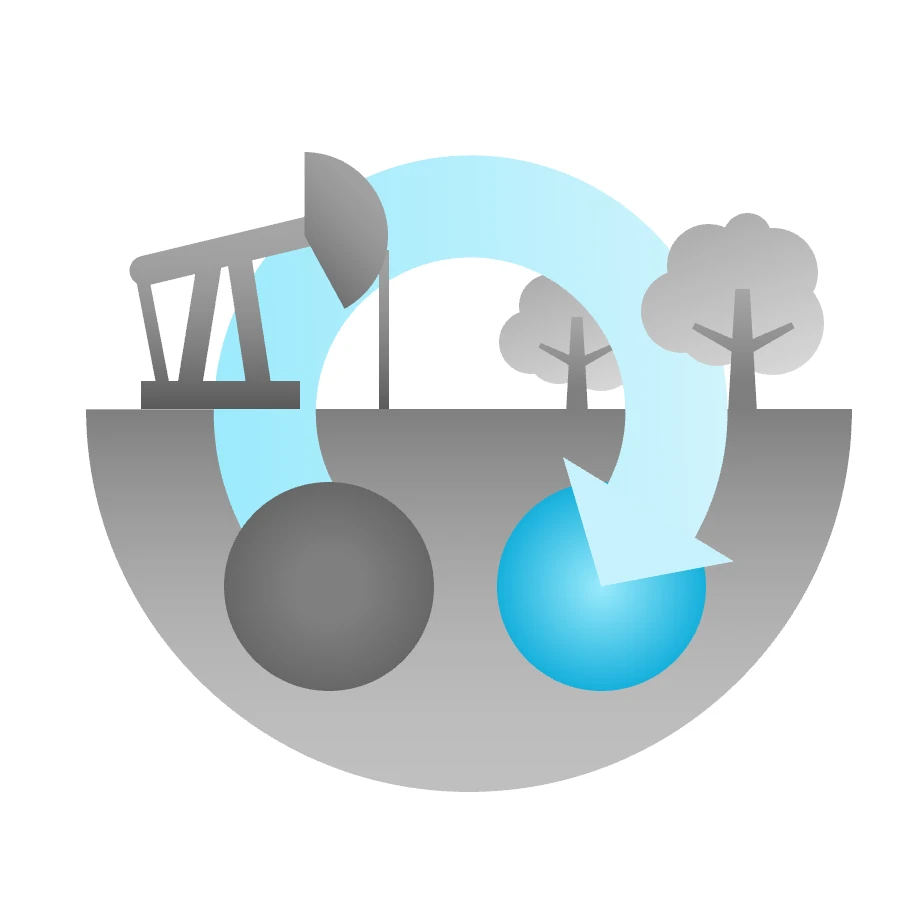Our Research
The reserach in our section falls into three categories: Geo-Energy, Geo-environmental Protection, and Computational Geosciences.
Geo-Energy
Our research on geo-energy explores methods to harness Earth's geothermal energy, advances the storage of liquid hydrogen in the subsurface, and studies the carbon footprint.
Geo-Environmental Protection
Industrial operations and anthopogenic interventions carry risks. Our research explores techniques to mitigate the impact of fossil fuel consumption, and analyzes the consequences of subsurface operations to reduce their future impact.
Computational Geoscience
The subsurface is mostly out of reach and out of sight. To rigorously analyse and predict the impact of subsurface operations, we advance research in data assimilation, optimization and control theory, and numerical simulation.
Our Publications
Below, you can access a list of our section's most recent publications.
- Kishan Ramesh Kumar, Herminio Honorio, Debanjan Chandra, Martin Lesueur, Hadi Hajibeygi, (2023), Comprehensive review of geomechanics of underground hydrogen storage in depleted reservoirs and salt caverns, In Journal of Energy Storage Volume 73.
- Kiarash Mansour Pour, Denis Voskov, David Bruhn, (2023), Coupled modeling of well and reservoir for geo-energy applications, In Geoenergy Science and Engineering Volume 227.
- Elahe Kamel Targhi, Mohammad Emami Niri, Pacelli L.J. Zitha, (2023), Design of Artificial Neural Network for predicting the reduction in permeability of porous media as a result of polymer gel injection, In Geoenergy Science and Engineering Volume 227.
- Kenta Yamada, Bruno Ramon Batista Fernandes, Atharva Kalamkar, Jonghyeon Jeon, Mojdeh Delshad, Rouhi Farajzadeh, Kamy Sepehrnoori, (2024), Development of a hydrate risk assessment tool based on machine learning for CO<sub>2</sub> storage in depleted gas reservoirs, In Fuel Volume 357.
- Lifei Yan, Mohammad Hossein Golestan, Wenyu Zhou, S. Majid Hassanizadeh, Carl Fredrik Berg, Amir Raoof, (2023), Direct Evidence of Salinity Difference Effect on Water Transport in Oil: Pore-Scale Mechanisms, In Energy and Fuels Volume 37 p.15537−15552.
- Jiakun Gong, Yuan Wang, Raj Deo Tewari, Ridhwan Zhafri B. Kamarul Bahrim, William Rossen, Effect of Gas Composition on Surfactant Injectivity in a Surfactant-Alternating-Gas Foam Process, In Molecules Volume 29.
- A.M.H. Pluymakers, R.R. Bakker, F.B. Ter Steege, B. Versluis, A. Barnhoorn, (2023), Effect of a singular planar heterogeneity on tensile failure, In International Journal of Rock Mechanics and Mining Sciences Volume 170.
- Xiaoming Tian, Denis Voskov, (2023), Efficient Inverse Modeling Framework for Energy Transition Applications Using Operator-Based Linearization and Adjoint Gradients, In SPE Reservoir Simulation Conference 2023 Proceedings Papers, Society of Petroleum Engineers.
- Mengjie Zhao, Yuhang Wang, Marc Gerritsma, Hadi Hajibeygi, (2023), Efficient simulation of CO<sub>2</sub> migration dynamics in deep saline aquifers using a multi-task deep learning technique with consistency, In Advances in Water Resources Volume 178.
- Hamed Ali Diab-Montero, Meng Li, Ylona van Dinther, Femke C. Vossepoel, (2023), Estimating the occurrence of slow slip events and earthquakes with an ensemble Kalman filter, In Geophysical Journal International Volume 234 p.1701-1721.








